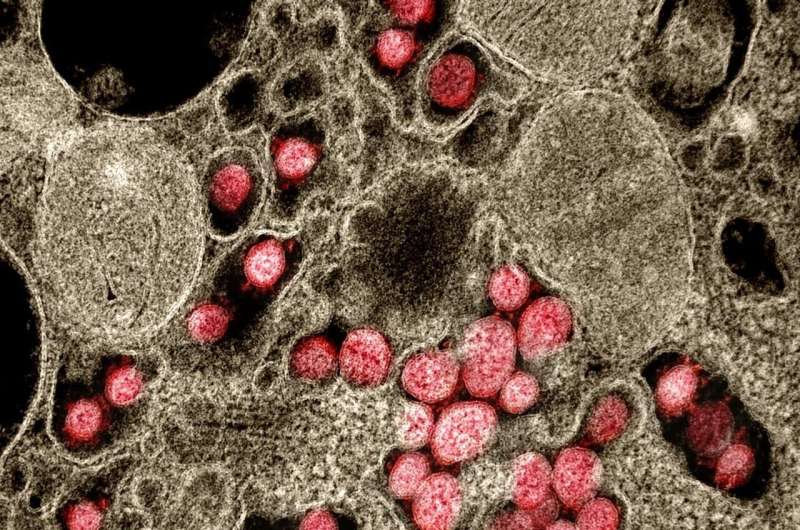Cancer drug shows potential against pseudo SARS-CoV-2 in lab tests

Despite the effectiveness of COVID-19 vaccines, treatments are still needed to combat this disease, which has killed millions of people and still kills thousands each day across the world. Scientists at the UNC School of Medicine conducted lab experiments showing how the cancer drug lenalidomide disrupts a cellular pathway in human cells so that pseudo-viruses derived from SARS-CoV-2—the virus that causes COVID-19—cannot enter cells to cause infection.
The research, published in a letter to the journal Signal Transduction and Targeted Therapy, shows the potential of an existing FDA-approved drug to help doctors treat the sickest COVID-19 patients.
The labs of Pengda Liu, Ph.D., and Guochun Jiang, Ph.D., both assistant professors in the UNC Department of Biochemistry and Biophysics, conducted this work. Liu is a member of the UNC Lineberger Comprehensive Cancer Center, and Jiang is a member of the UNC HIV Cure Center.
SARS-CoV-2, a novel coronavirus and the causative agent of COVID-19, has caused a global social and economic disruption, and there are still thousands of cases and death each day in the United States and around the world. Treatments to prevent severe illness and death are still needed.
In this research letter, the UNC team reported that a protein called E3 ligase SPOP recognizes and protects the human cell surface receptor ACE2, which is the protein SARS-CoV-2 latches onto in order to gain entry into cells to cause infection. Another protein called CK1 kinase triggers this recognition and protection of ACE2.
The researches used the cancer drug lenalidomide to inhibit CK1 kinase activity in cell cultures and showed a substantial reduction in ACE2 protein levels in kidney cancer cells. Researchers used SARS-CoV-2 S protein conditioned pseudoviruses in vitro and found lenalidomide treatment reduced the effect of this infection on kidney-derived cells.
"We hope that our identification and tests for the efficacy of inactivating the SPOP/CKI signaling in reducing ACE2 protein expression to attenuate SARS-CoV-2 infection provides a timely investigation into new therapeutic directions to combat COVID-19," Liu said.
A next step could be to use animal models to see if the drug blocks real SARS-CoV-2.
More information: Siyuan Su et al, Lenalidomide downregulates ACE2 protein abundance to alleviate infection by SARS-CoV-2 spike protein conditioned pseudoviruses, Signal Transduction and Targeted Therapy (2021). DOI: 10.1038/s41392-021-00608-1




















